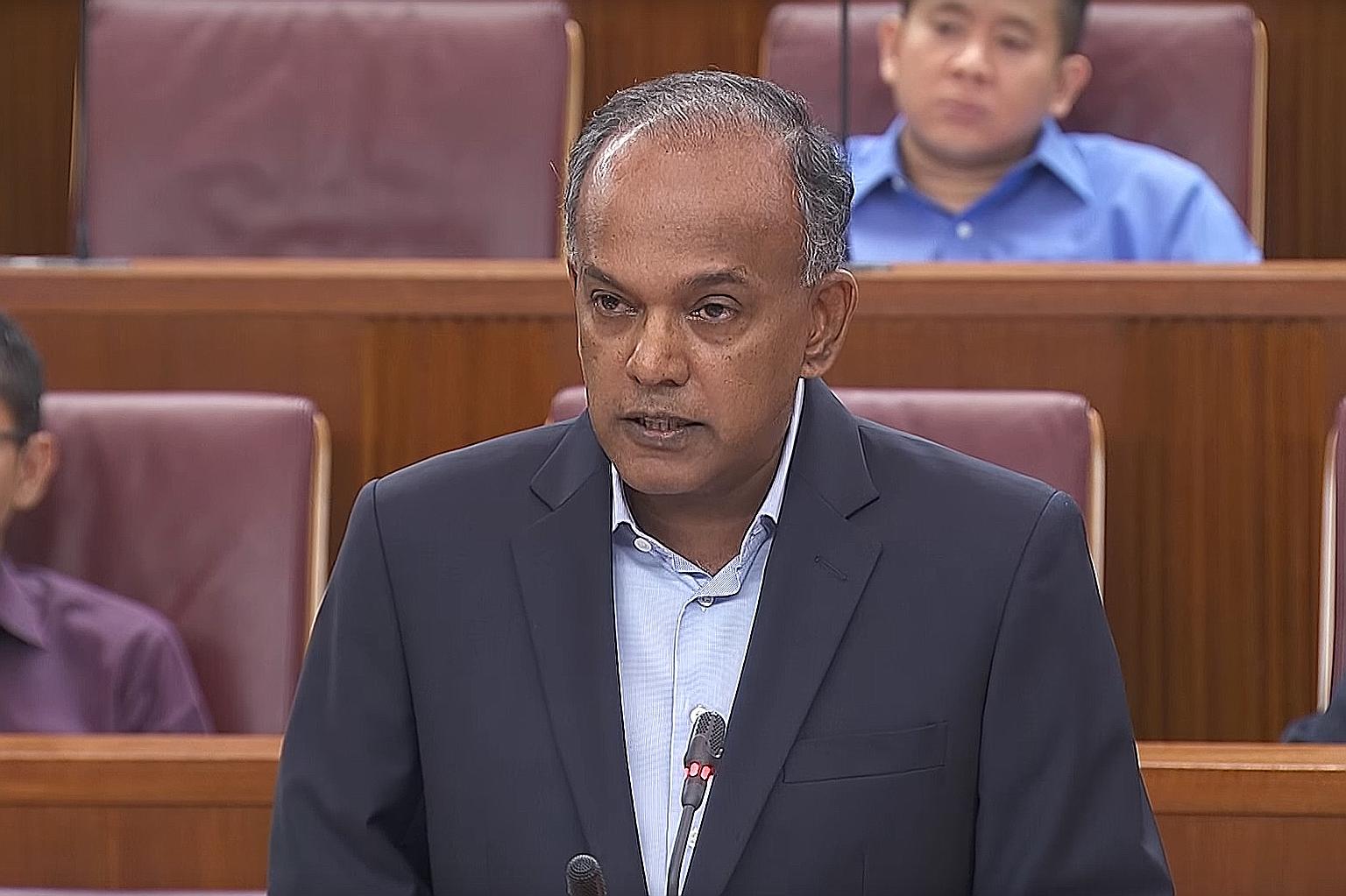MPs' views
Concerns over where to draw the line in fighting fake news
Combating falsehood not contrary to freedom of speech: Shanmugam
Sign up now: Get ST's newsletters delivered to your inbox

MR K. SHANMUGAM, Minister for Home Affairs and Minister for Law.
Seow Bei Yi
Follow topic:
As Singapore prepares to fight fake online news, Members of Parliament yesterday debated the topic of where to draw the line that should not be crossed.
One of the questions posed was: How does Singapore ensure that new laws to tackle online falsehoods will not end up impeding citizens' rights to free speech?
"How do we distinguish those who knowingly create or spread online falsehoods from those who are just expressing their opinions?" asked Ms Sun Xueling (Pasir Ris-Punggol GRC).
She was responding to a motion moved by Home Affairs and Law Minister K. Shanmugam to form a Select Committee to examine the problem of online falsehoods. This was passed unanimously by all 80 MPs present yesterday.
This 10-MP Select Committee will come up with countermeasures, which could include legislation, against the threat of such fake news.
Nominated MP Kok Heng Leun highlighted the need to define what a deliberate falsehood is and distinguish it from biased, but legitimate, commentaries.
He also called for a deeper look at existing laws. These include the Telecommunications Act - where knowingly transmitting a false message could lead to a fine and jail term - and the Protection from Harassment Act and Sedition Act, which already go some way towards curbing online falsehoods. This was seen in a previous case where founders of The Real Singapore were jailed for a series of seditious articles.
"This demonstrates that our current existing laws and provisions have been effective," he argued.
"We do not want a heavy-handed approach that will root out constructive, though at times disagreeing, voices," added Mr Kok.
He called for the Select Committee to balance the interests of protecting national security and public order, with the interests of individuals who want to have "meaningful discussions on issues of concern, including government policies", and also that of the media to report on such matters.
Mr Seah Kian Peng (Marine Parade GRC) noted that the extent of government involvement "requires deep discussion". "We may end up freezing free speech online," he said. "Legislation, if overly relied on, may also weaken the ability of society to educate themselves and discern what is real or not for themselves."
Ms Lee Bee Wah (Nee Soon GRC) suggested that the Select Com-mittee pay attention to whether any proposed measures would silence the opposition and critics of the Government.
In response, Mr Shanmugam said combating falsehoods is not contrary to the exercise of freedom of speech. He added: "In fact, keeping falsehoods out of our discourse enables freedom of speech to be meaningfully exercised."
He added that in responding to falsehoods, there may be a need to take into account their nature and the intention behind them.
Mr Shanmugam noted Mr Kok's point that fake news is used to divide and mislead society, and his question on how this segues into biased commentary.
In response, he said that strongly held viewpoints based on inaccuracies is one kind of falsehood.
However, its impact would be different from deliberate, targeted fake news, and these are matters that should be considered.
During yesterday's debate, Nominated MP Mahdev Mohan also said that users should be equipped to be the first line of defence against fake news.
To tackle fake news, several MPs also stressed the need to educate the public. Ms Rahayu Mahzam (Jurong GRC) said that legislation should be a part of a "wider, more multi-pronged approach" where media literacy is key.
Nominated MP Ganesh Rajaram added that education can start as early as in pre-school.
Mr Christopher de Souza (Holland-Bukit Timah GRC) added: "What is important is discernment, and not just disbelief."
"Empowering people to discern between truth and lies is of paramount importance," he said. "Only then, can we increase our resistance to the insidiousness of falsehood."

